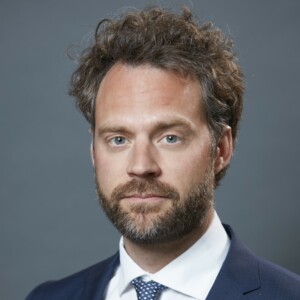The international system appears to be undergoing major change. This seminar explores these recent changes from a historical perspective. It looks at the events that have had a major impact on the actors, processes, and norms of international politics during the last four centuries. It also discusses how international relations research identifies major change in international politics, including the concept of ‘monster years’, a time-based criterion for identifying the most significant changes in international politics. A primary question concerns whether the year 2018 qualifies as a ‘monster year’, based on the recent actions and policies by the major players in international politics.
Puhujat

Kalevi Holsti is Emeritus Professor of Political Science at the University of British Columbia. He received his PhD from Stanford University and he has been Visiting Professor at the University of Hawaii, Hebrew University, McGill University, Kyoto University, Australian National University, amongst others. In 1986-1987, he served as President of the International Studies Association. He is a Member of the Royal Society of Canada as well as the Finnish Society of Science and Letters. Professor Holsti has published numerous books, chapters in edited volumes, and journal articles.

Torbjørn L. Knutsen is Professor of Political Science at the Norwegian University of Science and Technology (NTNU) and Adjunct Professor at the Royal Norwegian Air Force Academy. He received his PhD from the University of Denver and he has served as an adviser to the Norwegian Ministry of Foreign Affairs. He has previously taught at Vanderbilt University and George Mason University and conducted research at the University of Southern California, the Norwegian Nobel Institute and the Johns Hopkins University. Professor Knutsen has published books on international relations theory, foreign policy and research methods.

Puheenjohtaja

Mikael Wigell is Research Director at the Finnish Institute of International Affairs and Adjunct Professor in International Political Economy at the University of Tampere. He belongs to the World Economic Forum Expert Network, currently curating the WEF’s Geoeconomics section. Wigell has also been a Member of the Development Policy Committee of the Finnish Government and Chairman of the Finnish International Studies Association. He earned his PhD at the London School of Economics and he has been a Visiting Fellow at the Changing Character of War Centre, Oxford University.
His work on great-power politics, geoeconomics, hybrid threats and the political economy of development has been published in top-ranked international academic journals such as International Affairs, World Development, The Washington Quarterly, Comparative Strategy, Democratization, Asia Europe Journal and Global Affairs. He has also written policy reports for the European Commission, the European Parliament and the Government of Finland, as well as a number of briefings for international organizations such as the World Economic Forum, the Japan Development Bank and the Konrad Adenauer Stiftung. He led the International Business Risk and Resilience Monitor-project funded by the European Commission, as well as the Nordic Security of Supply in an Age of Disruption-project funded by the Nordic Council of Ministers. His latest publication (ed. together with Mika Aaltola and Sören Scholvin) is Geo-economics and Power Politics in the 21st Century: The Revival of Economic Statecraft (Routledge, 2018; 2020).
